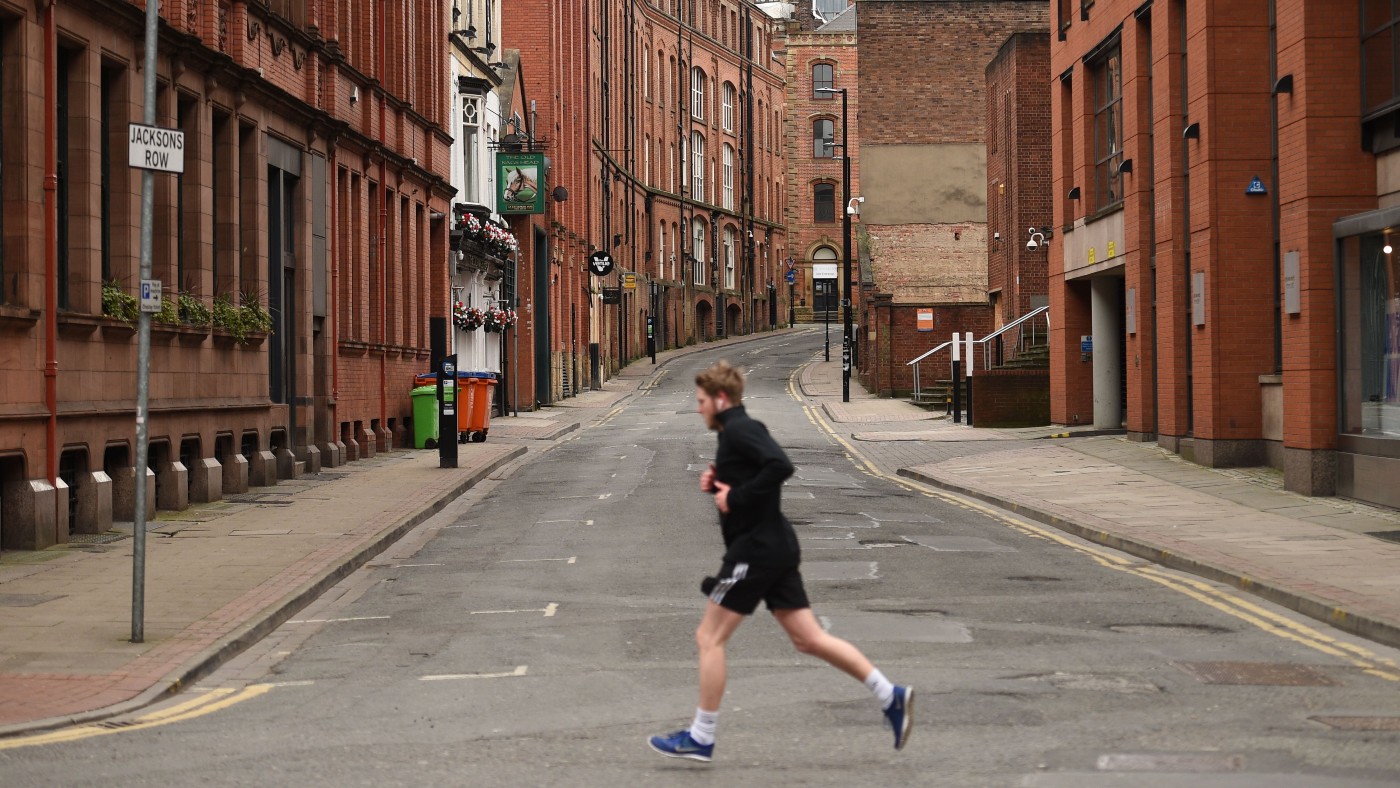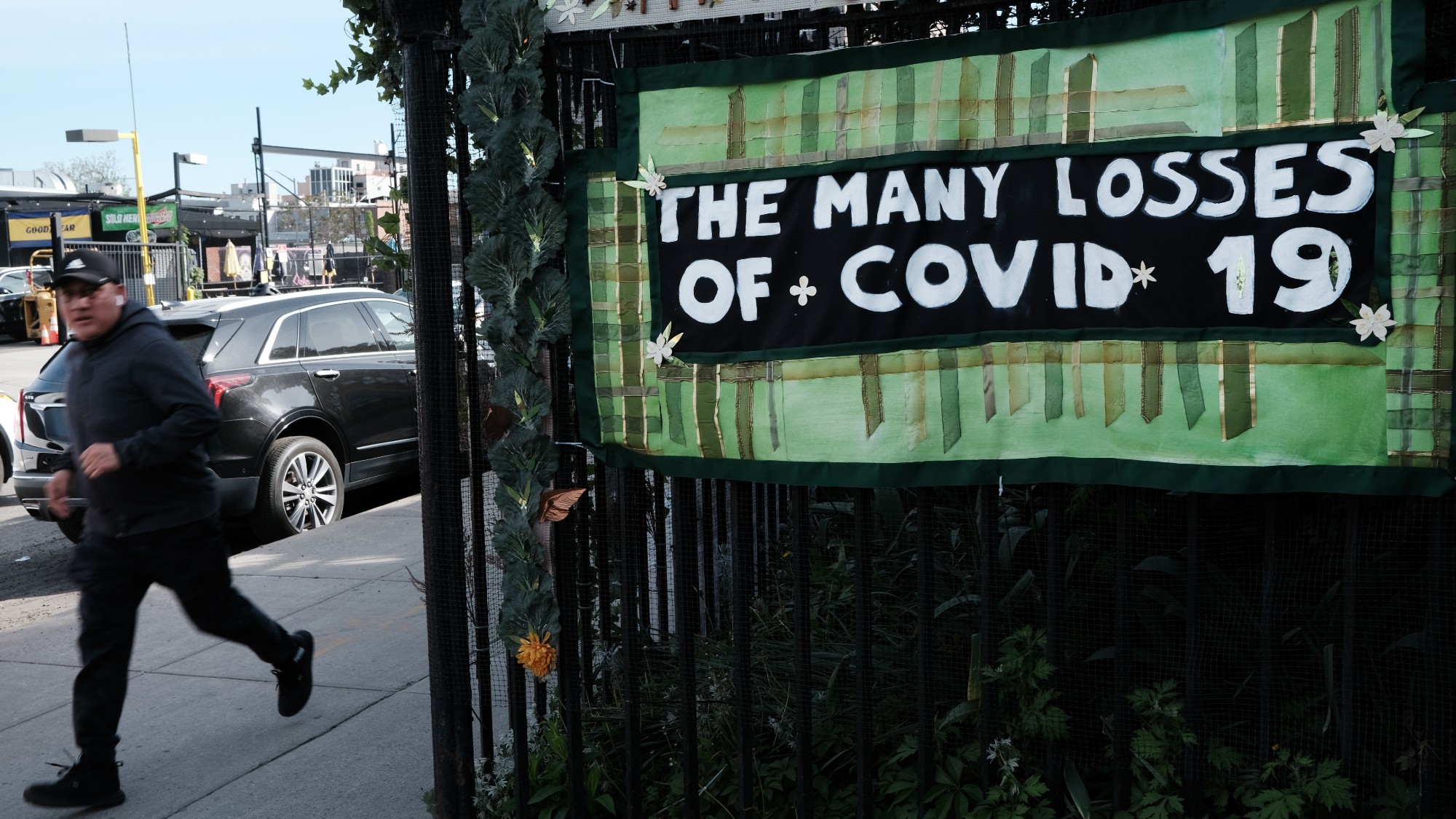The pros and cons of lifting lockdown early
Positive data prompts calls for Covid restrictions to be eased sooner than planned

A free daily email with the biggest news stories of the day – and the best features from TheWeek.com
You are now subscribed
Your newsletter sign-up was successful
New figures showing that almost a quarter of registered coronavirus deaths were not actually caused by the disease have led to renewed calls for the government to lift lockdown restrictions earlier than planned.
Data from the Office for National Statistics (ONS) showed that 23% of Covid deaths relate to people who died “with” the virus rather than “from” it. Although these people would have tested positive for the virus, it was not the primary cause of their deaths.
The ONS figures add to mounting evidence showing “an increasingly positive picture of the state of the pandemic in the UK”, reports The Daily Telegraph. Yet a senior government source told the newspaper that the current roadmap out of lockdown would remain in place.
The Week
Escape your echo chamber. Get the facts behind the news, plus analysis from multiple perspectives.

Sign up for The Week's Free Newsletters
From our morning news briefing to a weekly Good News Newsletter, get the best of The Week delivered directly to your inbox.
From our morning news briefing to a weekly Good News Newsletter, get the best of The Week delivered directly to your inbox.
Here are some of the arguments for and against lifting restrictions sooner.
Pros
Fall in deaths
Average daily Covid deaths in the UK have not totalled over 30 for almost two weeks. Professor Sir David Spiegelhalter, chair of the Winton Centre for Risk and Evidence Communication at the University of Cambridge, is among those who would accelerate the lifting of lockdown. “People think ‘why do we have to wait another two months before we’re free of all these restrictions?’,” he said.
Some of the main arguments critics make against a prolonged lockdown is the impact it has on the economy, unemployment, mental health and civil liberties.
A free daily email with the biggest news stories of the day – and the best features from TheWeek.com
Low infection rates and hospitalisations
The number of Covid patients admitted to hospital each day fell to an average of 224 in the week to 4 April, just 5% of the 4,394 hospitalised when admissions peaked in January. The number of cases across the UK, reported by a lab or rapid lateral flow test, also fell to an average of 2,751 from a peak of 61,243 in January.
Former Tory cabinet minister Sir Iain Duncan Smith has complained that the government is following “assumptions and forecasts” rather than the real-life data, calling the current roadmap dates “deeply pessimistic”. He told the Daily Mail that hospitality should be opening up inside as well as outside and “then other stuff cascading directly as a result of that”.
Vaccination rollout
More than 32 million people have now received their first vaccination and nearly eight million have had their second. This means the UK has the highest proportion of vaccinated people in the world, apart from Israel, according to Oxford data tracking.
Health Secretary Matt Hancock has said the government is “on track” to offer all adults a jab by the end of July, having already met its target of offering a first dose to all over-50s and those in high-risk groups ahead of schedule.
Professor Mark Woolhouse, who specialises in infectious disease epidemiology at Edinburgh University, has also said the government should be “driven by the data”. This lockdown is different to previous lockdowns because we have the vaccination, he told Times Radio in February. If the policy goal was to protect the NHS, vaccines break the link between infections and hospitalisations and deaths. “I hope that will translate into at least considering early relaxations,” he said.
Cons
Five-week gaps
The government has shown an unwavering commitment to its roadmap out of lockdown. Yesterday, Boris Johnson said that Covid restrictions, not the vaccine rollout, had been key to the reduction in infections, hospitalisations and deaths – and he warned that the numbers may rise following Monday’s easing of the rules.
This is one reason the government has set out a five-week gap between each stage of lifting lockdown. The effect of each reopening will be examined to ensure that it is safe to take the next step.
New variants
The four tests for each stage of reopening include: success of the vaccine rollout, reduced deaths and hospitalisations, control of infection rates and keeping new variants in check.
Jane Merrick at The i newspaper says the variant test is the “wild card of the pack”. “If a different variant begins to take hold in a community that can dodge the vaccines, that suddenly has an evolutionary advantage and will increase transmission,” she explains.
While the UK is a world leader in genomic sequencing of the virus, scientists will want to see whether the gradual relaxation of restrictions gives new variants a “window of opportunity to take hold before adapted vaccines are ready”, says Merrick. This will be particularly important when overseas travel is allowed.
The unvaccinated
Although millions of vaccines have been administered, there are still many people who are not protected from the virus. New analysis, out yesterday from the Press Association, suggests around 1.3 million vulnerable people are yet to be vaccinated.
Professor Jeremy Brown, a member of the Joint Committee on Vaccination and Immunisation, told BBC Radio Four: “The problem here is that that five or ten per cent who have not been vaccinated, when the virus re-circulates through the community, they could get infected and end up in hospital.”
-
 Political cartoons for February 7
Political cartoons for February 7Cartoons Saturday’s political cartoons include an earthquake warning, Washington Post Mortem, and more
-
 5 cinematic cartoons about Bezos betting big on 'Melania'
5 cinematic cartoons about Bezos betting big on 'Melania'Cartoons Artists take on a girlboss, a fetching newspaper, and more
-
 The fall of the generals: China’s military purge
The fall of the generals: China’s military purgeIn the Spotlight Xi Jinping’s extraordinary removal of senior general proves that no-one is safe from anti-corruption drive that has investigated millions
-
 The high street: Britain’s next political battleground?
The high street: Britain’s next political battleground?In the Spotlight Mass closure of shops and influx of organised crime are fuelling voter anger, and offer an opening for Reform UK
-
 Is a Reform-Tory pact becoming more likely?
Is a Reform-Tory pact becoming more likely?Today’s Big Question Nigel Farage’s party is ahead in the polls but still falls well short of a Commons majority, while Conservatives are still losing MPs to Reform
-
 Taking the low road: why the SNP is still standing strong
Taking the low road: why the SNP is still standing strongTalking Point Party is on track for a fifth consecutive victory in May’s Holyrood election, despite controversies and plummeting support
-
 What difference will the 'historic' UK-Germany treaty make?
What difference will the 'historic' UK-Germany treaty make?Today's Big Question Europe's two biggest economies sign first treaty since WWII, underscoring 'triangle alliance' with France amid growing Russian threat and US distance
-
 Is the G7 still relevant?
Is the G7 still relevant?Talking Point Donald Trump's early departure cast a shadow over this week's meeting of the world's major democracies
-
 Angela Rayner: Labour's next leader?
Angela Rayner: Labour's next leader?Today's Big Question A leaked memo has sparked speculation that the deputy PM is positioning herself as the left-of-centre alternative to Keir Starmer
-
 Is Starmer's plan to send migrants overseas Rwanda 2.0?
Is Starmer's plan to send migrants overseas Rwanda 2.0?Today's Big Question Failed asylum seekers could be removed to Balkan nations under new government plans
-
 'There is a certain kind of strength in refusing to concede error'
'There is a certain kind of strength in refusing to concede error'instant opinion 'Opinion, comment and editorials of the day'